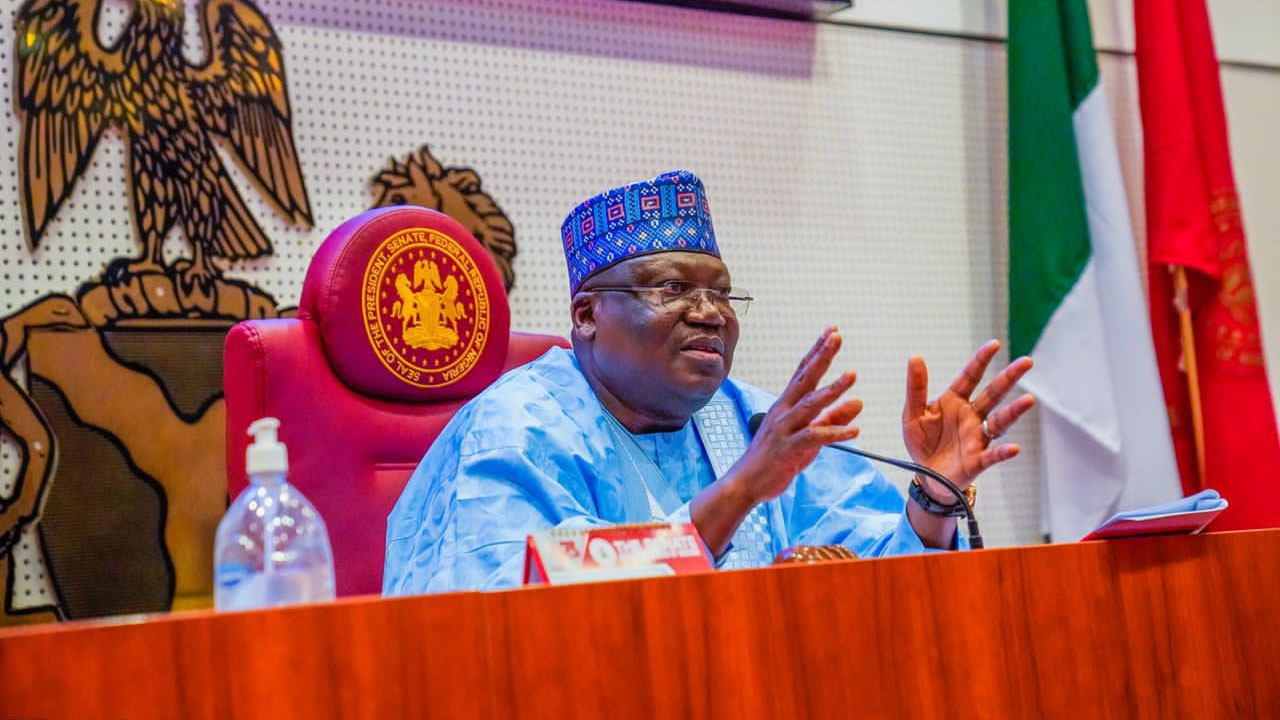
Former Senate President, Senator Ahmad Lawan, has raised concerns over Nigeria’s high interest rates, which he described as a major barrier to business investments and food production.
Speaking in Yobe North during the flag-off of food distribution to vulnerable communities, Lawan emphasized the need for structural reforms to address the nation’s economic and security challenges.
Lawan, in a statement by his media aide, Dr. Ezrel Tabiowo, noted that the 34 percent interest rate on loans charged by commercial banks as rates that will stifle entrepreneurship and agricultural productivity.
He called for urgent intervention to create accessible and affordable financing options for farmers and businesses.
“Our farmers and businesses cannot compete with their counterparts in countries offering loans at less than 1 percent interest rates,” Lawan said. “We must address this bottleneck to boost investments and food security.”
The food distribution exercise, organized through the Senator Ahmad Ibrahim Lawan (SAIL) Foundation, was aimed at providing short-term relief to vulnerable residents during the festive season. However, Lawan stressed that such palliatives are not sustainable solutions to Nigeria’s deep-rooted economic problems.
“Bailouts and food distributions are mere stopgap measures,” he said. “While they provide temporary relief, we must focus on empowering Nigerians to become self-reliant through long-term economic strategies.”
Lawan also drew attention to the plight of farmers in the Northwest, who are unable to access their farmlands due to insecurity.
He urged the federal government to intensify efforts to restore peace and ensure farmers return to their fields.
“Banditry has crippled agriculture in many northern states. We must secure our communities and provide farmers with affordable inputs to increase yields,” he noted.
Expressing hope in the reforms initiated by President Bola Tinubu’s administration, Lawan said he anticipates tangible economic improvements in 2025. However, he emphasized the need for state governments to complement federal efforts.
“Governance is not the sole responsibility of the federal government. States must step up and support local initiatives that promote food security and economic growth,” Lawan stated.
Lawan called on the federal government and financial regulators to address the “callous” interest rates imposed by commercial banks.
He argued that without accessible credit facilities, Nigeria’s efforts to stimulate production and reduce poverty would remain unattainable.
“We must prioritize reforms to make funds accessible to businesses and farmers at affordable rates. Until then, interventions like this will continue to be a lifeline for struggling Nigerians,” Lawan said.
Lawan’s remarks highlight the complex interplay of insecurity, economic policies, and financial barriers impacting Nigeria’s growth.
While short-term relief programs remain vital, he insists on long-term strategies to build a resilient economy driven by investments and agricultural productivity.






